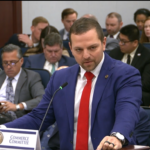Camera, lights, action
“In addition to improvements in economic and political conditions, a number of countries are developing into attractive film locales.”
— Chris Palmer, director of risk control for Aon/Albert G. Ruben and author of the annual Risks in Global Filmmaking Map comments on how more countries are stepping up to the plate making improvements to lure movie producers. Most notably, Romania and Bulgaria appear to be making concerted efforts to improve their film-related infrastructures in pushes to attract filmmakers, Palmer added.
Economic and political situations in a number of countries have created a slightly more favorable environment for filmmakers, according to the “2007 Risks in Global Filmmaking Map,” produced each year by Aon/Albert G. Ruben, an entertainment risk broker. Of the 207 countries measured, overall risk for filmmakers in 37 countries decreased slightly from 2006 to 2007.
Homeowners’ coverage myths
“Many homeowners learned the hard way that their insurance policies did not provide flood protection. … As we enter the 2007 hurricane season, we strongly encourage consumers in flood–prone areas to check whether they are properly covered.”
— Walter Bell, National Association of Insurance Commissioners’ (NAIC) president and Alabama commissioner, comments on the fact that a large percentage of U.S. homeowners mistakenly believe that standard homeowners insurance protects them from a wide array of perils. New research by the NAIC, confirmed that in fact, typical property and liability policies don’t cover home damage from floods, earthquakes, water line breaks, termites, mold and several other perils, large and small. The NAIC survey found that 33 percent of U.S. heads of household, who own a home and have homeowners insurance, incorrectly believe flood damages would be covered by a standard homeowners or property and liability policy, despite extensive media coverage on Hurricane Katrina victims whose claims were denied because they lacked flood insurance.
Sexual harassment training
“Some organizations have avoided implementing sexual harassment training programs for fear that providing it might increase lawsuits from otherwise unaware victims.”
— Caren M. Goldberg, a management professor at American University’s Kogod School of BusinessResearch. Goldberg said recent research confirmed, however, that sexual harassment training does not invite lawsuits. In fact, if an employer is sued, proof that sexual harassment training was offered may be one the best defenses. The study of 234 white-collar professionals from a variety of industries, all graduate-school students, was published in the journal Psychology of Women Quarterly. The subjects filled out a questionnaire that asked them to predict how they would respond to a variety of situations involving sexually-harassing behavior. After the questionnaire, roughly half of the subjects received sexual harassment training, while the rest did not. Responding to follow up questionnaires approximately three months later, the groups did not differ in their intent to seek legal counsel.
Was this article valuable?
Here are more articles you may enjoy.


 Hackers Used AI to Breach 600 Firewalls in Weeks, Amazon Says
Hackers Used AI to Breach 600 Firewalls in Weeks, Amazon Says  Marine Insurers Cancel War Risk Cover as Iran Conflict Escalates
Marine Insurers Cancel War Risk Cover as Iran Conflict Escalates  Zurich Insurance and Beazley Agree to $10.9B Cash Acquisition
Zurich Insurance and Beazley Agree to $10.9B Cash Acquisition  Florida OIR Slams Committee-Approved Clearinghouse Bill Changes as ‘Illusory’
Florida OIR Slams Committee-Approved Clearinghouse Bill Changes as ‘Illusory’ 


